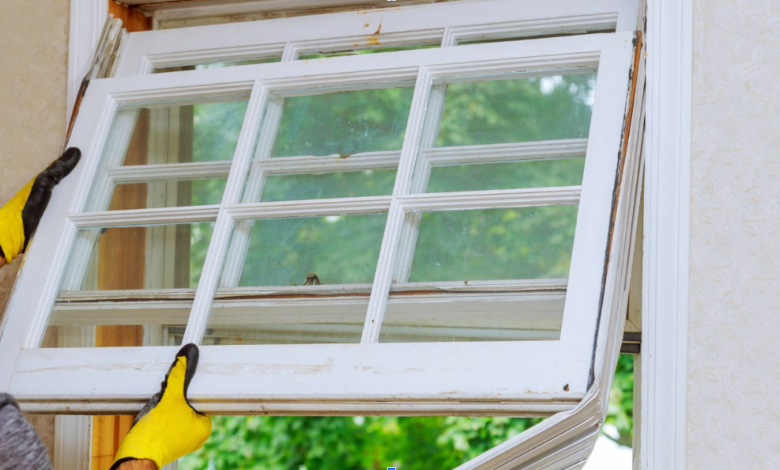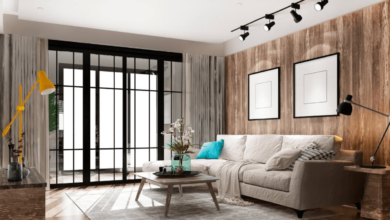The Key Factors to Consider in Home Window Replacement

Home window replacement is a significant investment that can greatly improve the appearance, comfort, and energy efficiency of your home. Whether you are upgrading old windows or replacing damaged ones, understanding the key factors to consider during the process can help ensure you make informed decisions. In this article, we’ll explore the essential aspects of home window replacement that you should keep in mind before starting your project.
Energy Efficiency of Windows
One of the most important reasons homeowners choose home window replacement is to enhance energy efficiency. Windows are a major point of heat loss or gain, and outdated or poorly sealed windows can cause your heating and cooling systems to work harder, increasing energy bills.
Insulated Window Options
When selecting new windows, it’s crucial to consider energy-efficient options. Look for windows with double or triple glazing, as they provide better insulation compared to single-pane windows. Low-emissivity (Low-E) coatings on glass can also help to reflect heat back into your home during the winter and block heat from entering during the summer. These energy-efficient features can significantly reduce the strain on your HVAC system, leading to lower utility bills and a more comfortable home.
Energy Star Ratings
Check the energy rating of the windows you’re considering for home window replacement. Many manufacturers provide Energy Star-rated windows, which meet strict energy performance standards set by the government. These windows are designed to offer better thermal insulation, which can help keep your home cool in the summer and warm in the winter, all while reducing your energy consumption.
See also: How Interior Design Can Influence the Mood of Your Home
Window Material Options
The material of your new windows plays a significant role in both the aesthetic and functional aspects of your home. Different window materials offer varying levels of durability, maintenance needs, and insulation properties. Some of the most common materials to consider during home window replacement include:
Vinyl Windows
- Affordable and low maintenance
- Energy-efficient
- Available in a wide range of styles and colors
- Resistant to rotting, peeling, and fading
Wood Windows
- Classic and elegant appearance
- Excellent insulation properties
- Requires more maintenance (painting, sealing)
- Ideal for homes seeking a traditional or upscale look
Aluminum and Fiberglass Windows
- Durable and strong
- Aluminum windows may require thermal breaks to prevent heat transfer
- Fiberglass windows are highly energy-efficient and resistant to temperature changes
Window Style and Design
The style of windows you choose can have a significant impact on both the interior and exterior aesthetics of your home. There are various window styles to consider, each offering different benefits and visual appeal. Here are some popular window styles for home window replacement:
Double-Hung Windows
- Two operable sashes that can be raised or lowered
- Great for ventilation and easy cleaning
- Suitable for both traditional and modern homes
Casement Windows
- Hinged on one side and opens outward
- Excellent for areas requiring larger openings for airflow
- Energy-efficient and provide unobstructed views
Sliding Windows
- Move horizontally along a track
- Great for spaces where swing-out windows won’t work
- Simple to use and clean
Bay or Bow Windows
- Large window units that project outward from the wall
- Create a focal point and provide expansive views
- Often feature a combination of fixed and operable windows
Budget Considerations
While home window replacement can enhance your home’s energy efficiency and aesthetics, it’s important to keep your budget in mind. The cost of window replacement can vary significantly depending on the materials, style, and installation complexity. It’s essential to balance quality with cost to ensure that you get the most value for your investment.
Get Multiple Quotes
Before committing to a window replacement project, it’s a good idea to get quotes from several contractors to compare prices and services. Ensure that the quotes include all costs, including labor, materials, and any potential additional charges. This will help you make an informed decision and prevent any surprises down the line.
Financing Options
Many homeowners find that home window replacement can be more affordable when they explore financing options. Some contractors offer payment plans, while others may assist with securing loans or finding rebates for energy-efficient windows. Don’t hesitate to ask about available financing options to help spread out the cost of the project.
Professional Installation vs. DIY
Although some homeowners may be tempted to tackle home window replacement themselves, hiring a professional is often the best option. Professional window installers have the necessary expertise and tools to ensure that the windows are installed correctly, which is crucial for both the function and longevity of the windows.
Benefits of Professional Installation
- Avoids common installation mistakes that could affect performance
- Proper sealing and weatherproofing, reducing the risk of leaks
- Professional installation typically comes with a warranty
DIY Considerations
- Requires specialized tools and knowledge
- Can be time-consuming and challenging
- Mistakes may result in the need for costly repairs
FAQs
What is the best material for windows?
The best material depends on your needs. Vinyl windows are affordable and low-maintenance, while wood windows offer better insulation and a traditional aesthetic. Aluminum and fiberglass windows are highly durable and energy-efficient, making them a good choice for various climates.
How much does home window replacement cost?
The cost of home window replacement can vary widely based on factors such as the material, style, size of the windows, and labor costs. On average, homeowners can expect to pay between $300 to $1,000 per window, with installation costs ranging from $100 to $300 per window.
How do I know if I need to replace my windows?
Signs that it may be time for home window replacement include drafts, visible damage (like cracks or warping), difficulty opening or closing the windows, and rising energy bills due to poor insulation.
Can I replace my windows myself?
While DIY window replacement is possible, it requires specialized knowledge and tools. Hiring a professional ensures that the windows are installed correctly, reducing the risk of mistakes and ensuring long-term performance.
How long do windows last?
Most windows can last between 15 to 30 years, depending on the material and level of maintenance. However, factors such as weather conditions and the quality of installation can impact the longevity of your windows.
Conclusion
Home window replacement is a valuable investment that can enhance your home’s appearance, comfort, and energy efficiency. By considering factors such as energy efficiency, window materials, style, budget, and professional installation, you can make an informed decision that will benefit your home for years to come. Take the time to research your options and work with reputable contractors to ensure that your window replacement project is a success.


